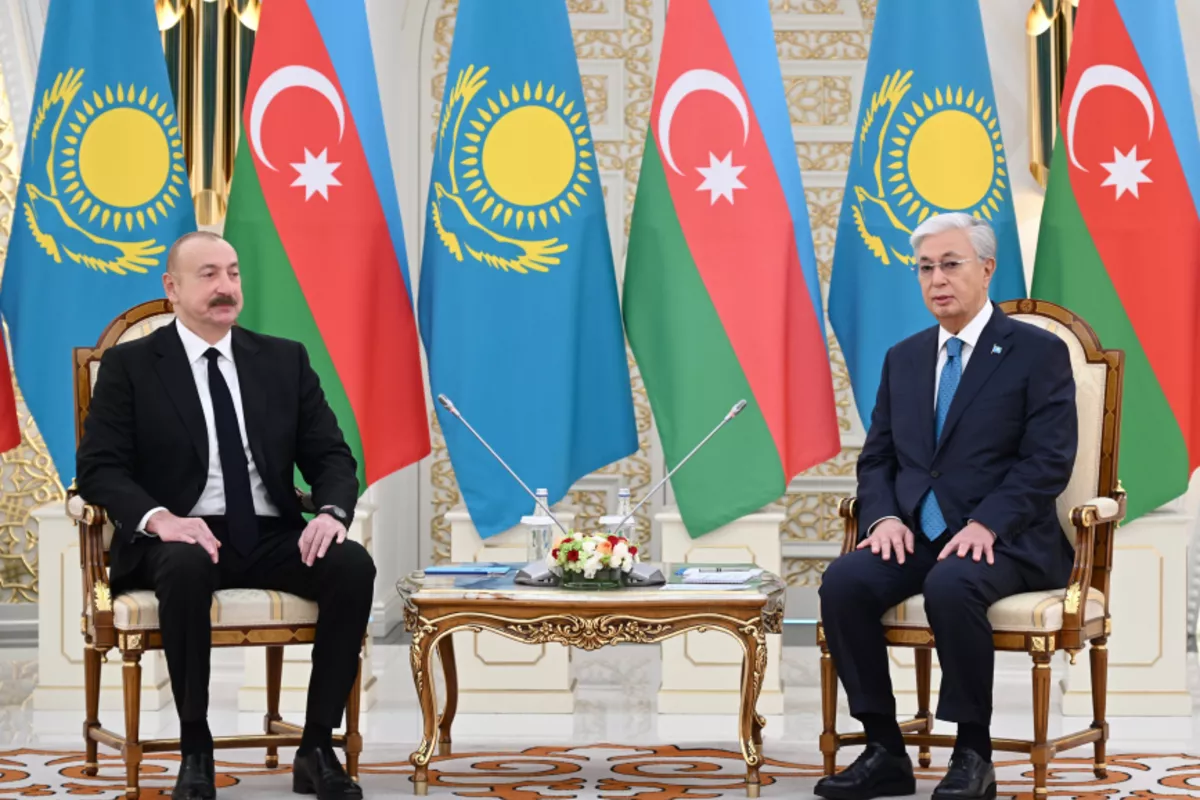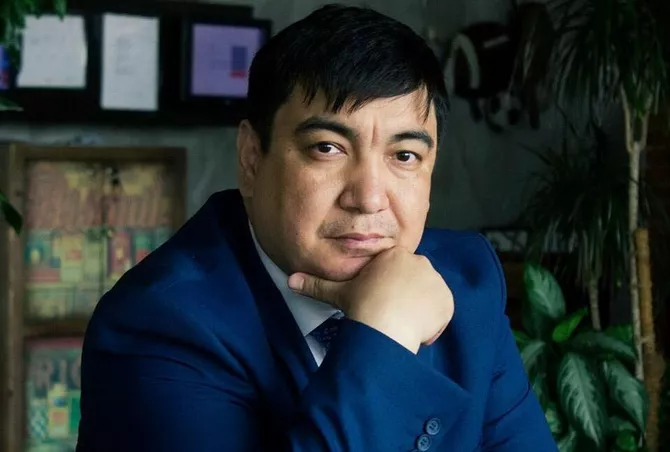
Photo: AZERTAC
The recent state visit to Kazakhstan by Azerbaijani President Ilham Aliyev marked a new milestone in the strategic partnership between the two Turkic nations. Going far beyond official protocol, the visit underscored the growing depth, maturity, and strategic foresight shaping relations between Baku and Astana.
Taking place on the 20th anniversary of the Treaty on Strategic Partnership, the visit symbolized not only the continuity of a shared vision but also the evolution of brotherly ties into a comprehensive political, economic, and cultural alliance.
Kazakh political observer Madi Raimov shared his exclusive commentary with The Caspian Post on the outcomes of Azerbaijani President Ilham Aliyev’s visit to Kazakhstan.

photo: Kazakh political observer Madi Raimov
According to him, the state visit to Kazakhstan by Azerbaijani President Ilham Aliyev was not merely a diplomatic event. It became a symbol of trust, maturity, and strategic foresight between two brotherly nations.
Raimov noted that Astana and Baku are now not just partners; they are pillars of a new Eurasian architecture, where the Turkic world is gradually transforming from a cultural realm into a political and economic force.
“Coinciding with the 20th anniversary of the Treaty on Strategic Partnership, the visit underscored the continuity of a shared course: from historical brotherhood to joint responsibility for the region’s future,” he said.
He added that negotiations in Astana were held in an atmosphere of special confidence, where every agreement was not a formality but part of a unified strategy.
“A key topic was transport and logistics integration. The Middle Corridor is not just a route from China to Europe through the Caspian and the Caucasus; it is a symbol of new Eurasian independence. Kazakhstan continues to strengthen the port of Aktau, Azerbaijan is developing Alat, and a digital artery is being laid along the Caspian seabed - the foundation of a future Digital Silk Road, Raimov said.
He added that millions of tons of cargo flow through the route, creating a new geopolitics of transport that is independent of external power centers and based on partnership and pragmatism. "Energy cooperation remains the beating heart of bilateral ties. Kazakhstan is boosting oil exports through Baku via the Baku-Tbilisi-Ceyhan pipeline, while SOCAR and KazMunayGas are expanding joint ventures in refining and transportation," the expert said.
“Importantly, Aliyev’s visit also provided a platform for open dialogue, including the issue of Kazakh oil contamination at Azerbaijani facilities,” Raimov pointed out.
He emphasized: “The main thing was to ensure that this technical issue does not push Kazakhstan back toward the Caspian Pipeline Consortium (CPC). Currently, Baku’s capacity allows the transit of 5-6 million tons of oil per year, compared to 33-34 million via the CPC. But the real goal is not volume but trust. Azerbaijan aims to prove to the West that it can be a reliable hub for hydrocarbons and goods, especially with the development of the Zangezur Corridor, already dubbed ‘Trump’s Road.’ Achieving this vision will require investment, political will, and strong allies, and that is why Baku and Astana are strengthening their tandem to jointly advocate the project before China, the United States, and Europe.”
Raimov also highlighted the growing cooperation between the two nations in high technology. “The fiber-optic cable project along the Caspian seabed will serve as an ‘information bridge’ from Asia to Europe. The focus is no longer just logistics, but the joint creation of a shared digital space within the Organization of Turkic States," he noted, adding that areas such as data exchange, cybersecurity, and artificial intelligence are becoming the cornerstones of future Turkic unity, where digital sovereignty is inseparable from national security.
The expert emphasized that the political dialogue between Presidents Aliyev and Tokayev reflected aligned positions on regional security and sustainable development.
“Meanwhile, the humanitarian dimension - through cultural programs, education, and youth exchanges - continues to reinforce this alliance on a societal level,” Raimov said.
“This visit was not about protocol or ceremony. It was a step toward a new level of agency. Baku and Astana are shaping an alternative model of integration - one rooted not in blocs or ideology, but in mutual trust, pragmatism, and a shared vision of the future. Indeed, Ilham Aliyev’s visit to Kazakhstan carries the breath of a new era. The partnership between Baku and Astana is emerging as an axis of trust, stability, and a new Eurasian renaissance, where Turkic brotherhood transforms from tradition into a 21st-century strategy,” Raimov concluded.
Share on social media